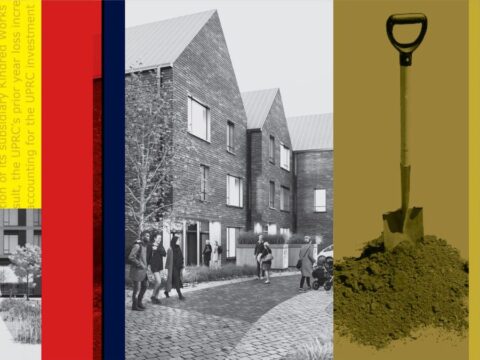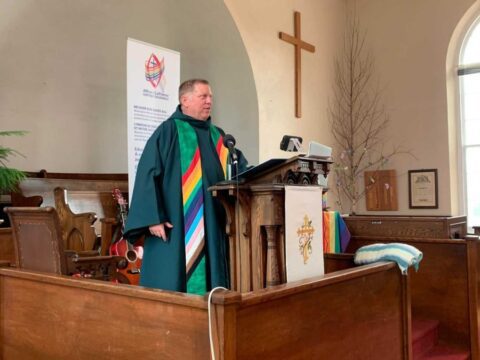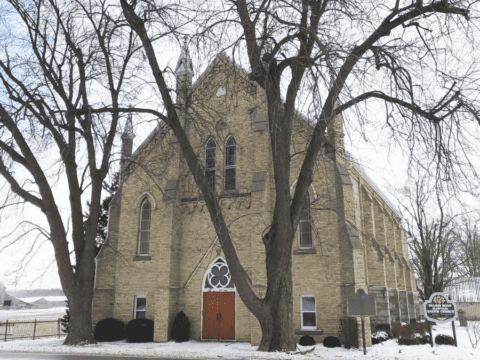Delegates can expect a few key procedural changes at the United Church of Canada’s 45th General Council, which started online late last month with opening worship, procedural motions and learning and discussion sessions.
The main business of General Council will take place both online and in person in Calgary from Aug. 7 to 11. This year’s gathering will bring shifts to how moderators make their pitches and how commissioners are called to speak. The General Council Office is also taking a precautionary approach to reviewing moderator nominees’ social media histories.
You may unsubscribe from any of our newsletters at any time.
Recorded moderator nominee speeches
In the past, moderator nominees delivered speeches in person. This year, they will pre-record them. The change is due to the shortened schedule, which limits the time commissioners have to consider nominees before voting, explained Rev. Taylor Croissant, chair of the General Council planning committee, in an interview. Recorded speeches can be replayed, allowing commissioners to thoroughly consider the candidates. The videos will also be shown when commissioners first meet in Calgary and at a meet-and-greet with nominees. The videos are in the process of being recorded and are expected to be ready for commissioners to view by late July.
At approximately 10 minutes long, the videos offer nominees “a good opportunity to put forward a vision of the church that people can make a decision around,” said Croissant. In past years, the number of nominees sometimes meant that speeches were quite short.
More on Broadview:
- Proposed ‘Faith Workers Bill of Rights” cites church bullying and unfai discpline process
- The United Church of Canada keeps its deficit in check, tightens belt for 2025
- 3 evergreen challenges in churches — and how to deal with them
Data-enhanced speaker order
Technology will also help boost diverse voices. Croissant said that, as in past years, the moderator will decide who speaks and when, but this year, those decisions will be assisted by a mobile app through which commissioners will submit their request to speak. Based on the list that the General Council equity team creates, the moderator will invite the next speaker to the microphone before the current speaker begins. The moderator can see the speakers’ list as it is created on a monitor.
“Commissioners were invited to share details about their identity upon registration, so we can track who we are not hearing from in the speakers,” Croissant told Broadview over email. “Then as we give updates to the court on this, we can say, ‘We’ve been hearing from more urban commissioners than rural commissioners, we invite more rural speakers to speak in the next section.’ We can do this with a range of categories: clergy/lay, Regional Council, gender, age, racialized/non-racialized, 2SLGBTQIA identity, urban/rural.”
Croissant stresses that everyone who requests to speak will be heard.
“It’s really not a far departure from what we’ve done,” he said. “People are familiar with that, so we don’t want to stray too far from it.”
Social media vetting
The General Council Office is taking a “preventative approach” to reviewing moderator nominees’ social media footprint.
The decision arose from a review of the role of the moderator, required every 10 years by The Manual. Given today’s socio-political climate and the significance of the moderator’s role, the task group recommended a vetting process to avoid surprises that could cause embarrassment to the denomination or to the nominee, explained General Secretary Rev. Michael Blair.
Blair says that the recommendation is not meant to disqualify nominees. Rather, it’s so that the church is aware of any potential pitfalls and can work together with the nominee — especially if the nominee becomes the moderator — to ensure that they are successful in the role. If there are concerns, the General Council Office will raise them with the nominees before their election.
“It’s just a precaution,” he said. “It’s a way of not allowing something to be distractive to the role or to the church.”
***
Leslie Sinclair is a journalist in Toronto.















Where is the outrage about changes such as have been articulated in this article? Do people close to the decision-makers at the top levels of The United Church of Canada not question the persistent and increasing controlling of the messaging? It’s astonishing that the GCO has such a stranglehold on communication in a Church that presents itself as open to a diversity of voices. The United Church of Canada chooses which diverse voices it would like to use to further its agenda, and it’s all extremely managed and spun.